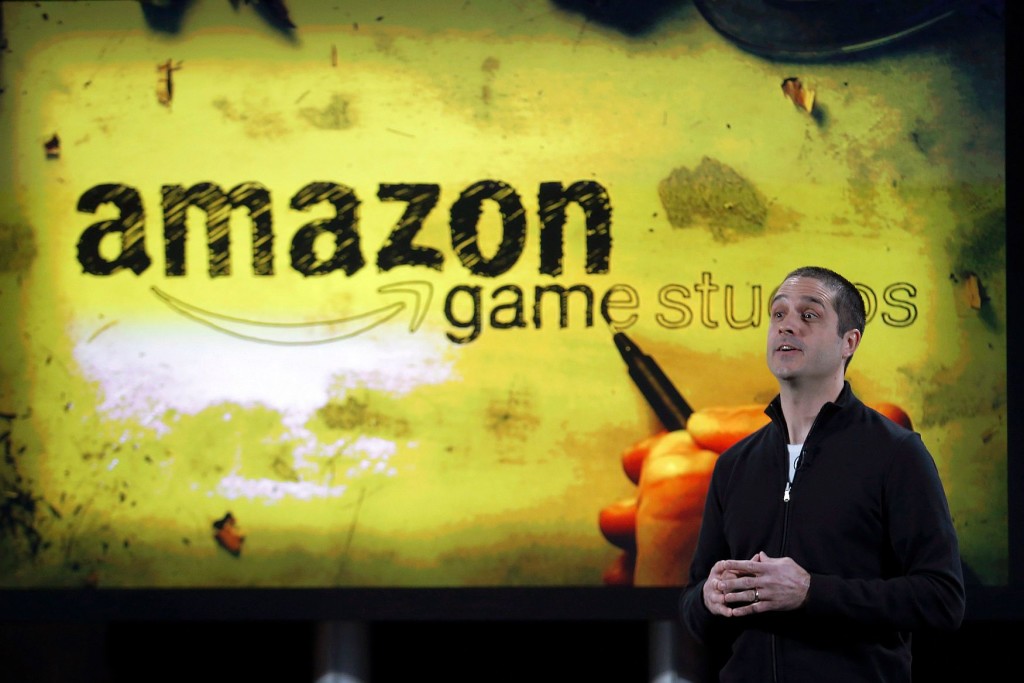Of all the vast changes in the game industry over the past few decades, perhaps none is more profound than the emergence of the gaming community. Yes, there have always been fans of games, but prior to the widespread adoption of the Internet those communities were fragmented and weakly connected. Game publishers spent most of their efforts connecting with retail store buyers, not customers. Now, though, with the Internet and social media connecting the world, publishers are finding that they need to develop an ongoing relationship with their audience.
Amazon’s Mike Frazzini, the vice president of Amazon Games, spoke at the Gaming Insiders Summit on Community-Driven Gaming. Amazon’s been in the business of games long before it started producing its own games or before it bought Twitch last year for nearly $1 billion. Frazzini noted that many game developers use Amazon Web Services to provide a scalable back end for their games. “AWS is heavily used by game developers,” Frazzini said. “The cloud takes the fixed costs associated with back-ends and make it a variable cost.” That’s a huge benefit to game publishers, who unlike many other service providers tend to see enormous changes over time in server usage. A new game often has a huge initial server load as everyone tries to play online at once, and then it can rapidly fall back to a lower level. Just as quickly, though, server usage can ramp up when a marketing campaign hits or some new DLC is released, so flexibility is valuable.
But Amazon has gone far beyond providing the unseen plumbing for games. Now Amazon’s commitment to games includes Twitch, which is heavily game-focused (with over 50% of its traffic coming from gaming content), and Amazon Game Studios, which is building PC games.
“Why did Amazon acquire Twitch ,” asked interviewer Michael Metzger. “We always start with the customers and players stream games,” Frazzini said. “Twitch showed gamers coming together to create new experiences,” he added, which was an important feature for Amazon. The company is looking for ways to engage gamers and get them excited, and Twitch was demonstrating that in new ways. Moreover, it was engaging the gaming community and building new communities around games.
“What has happened with Twitch since the acquisition ,” Metzger inquired. Frazzini didn’t hesitate. “What we said was job one was to not change a whole lot,” Frazzini stated. He explained that decision was an easy one for Amazon to make. “If you’ve met them [the Twitch team], the team is very focused on the long term,” Frazzini noted. “Twitch has1.5 million unique broadcasters every month, over 20 billion minutes viewed every month, and 100 million viewers every month.” Why would anyone want to mess with that sort of success Not Amazon.
Still, Amazon saw more in Twitch than just the impressive numbers. “Community is central to where the game industry is going,” Frazzini said. Twitch’s terrific numbers flow from that reality, as gamers are thrilled to share with one another their fascinating experiences in gaming. “What are the rise of community-driven games, and what does it mean ,” Metzger asked. “Games bring people together, they always have,” Frazzini said. “From the earliest days of gaming there were vibrant communities. In the ’90s the idea of local co-op emerged. Later, online gaming really brought it out. Now we see communities expanding along many dimensions, very quickly.”
Frazzini used a simple illustration to underscore the importance of community. “The notion that so much of your Star Wars experience exists outside of the movies, that informs what we do with games,” Frazzini said. He noted that for the huge number of Star Wars fans, the experience isn’t just the movies it’s the books, the toys, the games, the t-shirts, and the animated discussions that fans have with each other over the minute details of the Star Wars universe. For fans, Star Wars doesn’t just mean experiences it means friends, and a community drawn together by a common passion. That’s what drives game communities.
Frazzini saw tremendous value in eSports as another passion that helps build gaming communities. “We think eSports is just getting started,” Frazzini said. “We’re going to see more games where eSports are deeply contemplated early in the development process. As an example, on Twitch the final for the Rocket League tournament was ridiculously exciting.” Frazzini sees eSports as a key driver for the future of Twtich.
“What advice would you give to developers ,” Metzger inquired. Frazzini responded, “Mobile, free-to-play, VR, they are all fantastic things. But I think that experience and the community are more important how do you get people engaged and enjoying your product That’s what you need to figure out first. Then you can decide on the platform. Create a community and build from that base.”

